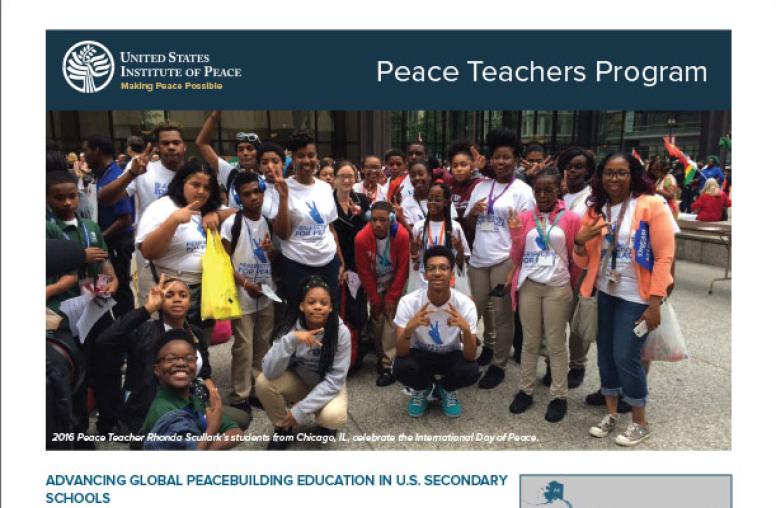Ambassador Dennis Ross Speaks About Iran as USIP and the Wilson Center Release "The Iran Primer"
Ambassador Dennis Ross, special assistant to the President and senior director for the Central Region including the Middle East, the Gulf, Afghanistan, Pakistan and South Asia, addressed USIP on the day it rolled out "The Iran Primer: Power, Politics and U.S. Policy," edited by USIP-Woodrow Wilson Center Fellow Robin Wright. The speech took place just a week before multilateral talks with Iran begin.
Ambassador Dennis Ross, special assistant to the President and senior director for the Central Region including the Middle East, the Gulf, Afghanistan, Pakistan and South Asia, addressed USIP on the day it rolled out "The Iran Primer: Power, Politics and U.S. Policy," edited by USIP-Woodrow Wilson Center Fellow Robin Wright. The speech took place just a week before multilateral talks with Iran begin.
Ross pointed out how the absence of U.S. diplomatic contact with Iranian officials for 30 years has led to difficulties in policy and in interpreting signals between our two countries. Ross complimented the new Iran Primer for its focus on the repeated efforts of past administrations to deal with Iran.
Ross said that President Obama wanted to change that situation through engagement and has made offers to engage Iran with mutual interest and mutual respect, but that Iran’s behavior has not, to date, shown a willingness to take a different path. "We wanted to use engagement so we could deal, directly with Iran and we said –‘we respect your rights, but with rights come responsibilities."
Ross said that U.S. intentions have never been to humiliate Iran or single Iran out. But Ross reiterated that Iran has a choice about which path it takes and that an Iran with nuclear weapons would be tremendously dangerous and would damage the non-proliferations aims of the U.S., globally. Ambassador Ross spelled out the effects of recent U.N. sanctions on Iran noting that "business as usual abroad for Iran is not possible right now." Ross addressed the affects of U.N. Security Council Resolution 1929 on Iranian revenues from energy, its ability to fund and facilitate nuclear activities, its ability to engage with companies, its imports of gasoline, and the fact that Iran’s central bank has to intervene to stabilize its currency. "What it all adds up to," said Ross, "is that the pressure on Iran is continuing to grow every day."
Ross said that the meetings with Iran and China, France, Germany, Russia, the United Kingdom and the U.S. – the “5+1” group - are serious but that President Obama is not prepared to "engage in talks just for the sake of talks." Iran has a chance," said Ross, "to really benefit from the talks in areas like science, technology, etc. and has a lot to gain from the talks."
Ross denied any sense that the U.S. is not approaching these talks with Iran with a seriousness of purpose and said that Iran can bring any issues to the table but that nuclear issues have to be part of the agenda.
Explore Further
- Read the remarks of Amb. Dennis Ross from the event "The Challenge of Iran"
- Learn more about this event
- Listen to the event audio
- Learn more about "The Iran Primer: Power, Politics and U.S. Policy"
- Questions and Answers with Robin Wright, editor
- Listen to the primer's authors on The Diane Rehm Show
- Learn more about USIP's work on Iran



